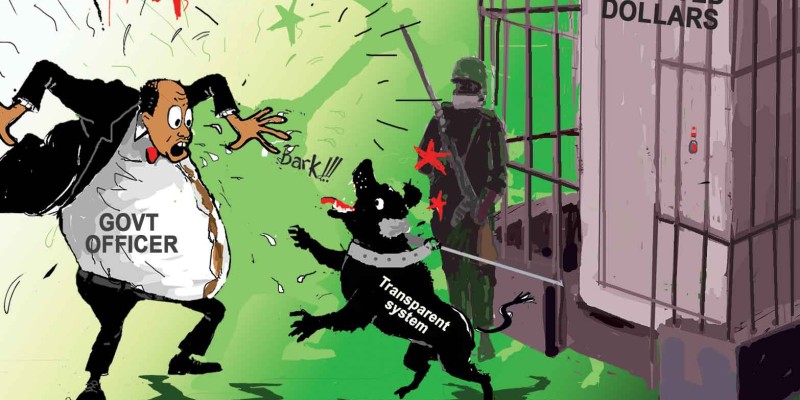FUEL IMPORTS: THE REAL CABAL
By: Sir Henry Olujimi Boyo (Les Leba), first published in July 2015
INTRO:
Last week, this column republished“Why Nigerians Will Become Poorer with Rising Oil Prices” The article is an interview in which the Late Sir Henry responded to commonly asked questions on the topic of fuel supply in relation to Nigeria’s failing economy. The republication can be found by accessing the link below.
(See www.betternaijanow.com for this series and more articles by the Late Sir Henry Boyo)
Today’s article examines the recurring issue of fuel supply through the import lens. It also discusses the disruption in Nigeria’s oil sector in relation to the alleged plot to ensure this sector never recovers,ultimately benefitting a select few. The article carefully dissects this concern, explaining the domino effect of such a practice on keeping the Nigerian economy down, and plunging the Nigerian people further into poverty and hardship.The fact that this article was written in the year 2015, is a cry for the nation to wake up, because nothing will change until we do. Kindly read on.
As you read through the below article taking note of the events and rates, keep in mind its initial publication (2015).
………………………………………………………………………………………………
A cursory survey of media reports on the downstream oil sector suggests that the prevailing popular belief is that a predatory cabal has a vice grip over the business of fuel importation. There is concern, therefore, that this, presumably, vicious class of businessmen would do everything possible to ensure that refineries will never work, and that the subsidy regime would subsist, while fuel supply will continue to be carefully manipulated to regularly induce artificial scarcity so that bountiful profits can be harvested from the attendant pain and economic dislocation deliberately initiated by the oil cabal.
It would probably be more difficult to find a contrary view to the above popular perception, than it is to find the proverbial needle in a haystack. Besides, the widely reported ‘extreme’ annual subsidy values seem to also confirm that these fuel barons make a killing on the back of fellow Nigerians. Furthermore, despite several allegations that marketers collect billions of Naira as refund of subsidies on fuel supplies which were never delivered, no convictions have, surprisingly, so far, resulted from EFCC’s tenuous efforts.
Nonetheless, it will be useful to examine the process of fuel importation more closely to actually identify the real beneficiaries in this business. Indeed, the major oil marketers, Total, Mobil, Oando, Conoil, NNPC inclusive, and a few others have not been fingered so far, for collecting subsidy with fake import papers. However, it may be more difficult to vouch for the innocence of the motley subset of hundreds of indigenous independent marketers, as this class also accommodates the ubiquitous briefcase importer, who is clearly, a more footloose buccaneer.
Sadly, much to the chagrin of the public, the snail speed procedure for the prosecution of financial crimes, may postpone judgment day for fuel subsidy racketeers, while a judicial process that is allegedly compromised may regrettably also set the guilty free. However, let us examine, hereafter, how profitable the fuel supply business is for bona fide importers, who have to borrow billions of dollars and Naira to finance their operations.
The available data from the Bureau of Statistics indicates that fuel accounts for over 40 percent of Nigeria’s total foreign exchange expenditure on imports annually. Thus, the consolidated forex requirement for genuine importers will exceed $5bn annually even when NNPC’s substantial swap deals are excluded. Instructively, commercial banks would buy the required dollars, predominantly, from the Central Bank at the official rate and then add between 1-2 percent premium on their purchases before selling forex to importers; the banks could easily earn over $100m from such simple exchange transactions. However, the premium on each dollar sold may well exceed N10 per dollar, whenever dollar is relatively scarce and the parallel market exchange rate is over N220 while official rate remains below N200/$ as is currently the case. However, such gains may not be directly captured in each bank’s accounting records!
It is also not immediately obvious to non-business persons, that fuel importers borrow the Trillions of Naira which they subsequently exchange for dollars from the same banks; presently, fuel marketers pay between 17-20 percent interest for the Trillions of Naira loans for their imports. Furthermore, importers would also require additional Naira loans to settle port, storage and other ancillary domestic charges. Thus, the already high consolidated cost of importation will still become further compounded with standard bank charges, such as COT, L/C establishment, loan administration, insurance and of course, the legal fees to perfect each contract.
Worse still, ultimately, the ‘now customary’ extended delays preceding government’s release of subsidy refunds to marketers, will also lead to unexpected open-ended additional costs; thus, each cycle of import may attract well over 10 percent consolidated interest charges, from which banks could earn over N100bn as income. Ultimately, the relatively modest 3-4 percent gross margins which marketers projected on shorter turnaround cycles for their imports will become extensively breached because of delayed payments, while the ‘unexpected’ failure of the venture may become a major inducement for hyper-stress for genuine fuel merchants.
Sadly, the woes of fuel importers could still be further compounded if the Naira exchange rate also suffers depreciation against the dollar before approved subsidy claims are finally settled, especially if government carelessly foot drags or denies liability for delayed payments and exchange rate differentials. Indeed, the recent 20 percent Naira devaluation may have inadvertently added over N200bn($1bn) to the annual cost of fuel imports; thus, any additional delay in the settlement of existing claims, would in turn, further increase the attendant interest burden for marketers. Indeed, the longer it takes to settle the alleged current outstanding claims of almost N300bn, for payment delays and exchange rate differentials, the heavier will be the ultimate debt burden to marketers, particularly, if the official dollar rate appreciates above N220=$1 as per current speculation. Expectedly, the reluctance of marketers to commit to fresh fuel imports if outstanding bills remain unsettled, will inevitably trigger domestic scarcity which will induce the usual social angst and also spur a spiral in the black-market price of fuel.
Thus, with the constant abiding threat of negative profit, it is difficult to understand how any sane businessman would wish that such an oppressive business model should continue. Nevertheless, without the steady cash flow from fuel marketing, the subsisting heavy debt obligations to banks would ground the activities of marketers and increase the burden of maintaining their existing substantial investments in storage and supply infrastructure nationwide, while unserviced overheads and recurrent expenses would deepen the agony of fuel merchants and ultimately cripple their businesses.
What shines through from the above narrative is the extreme good fortune of banks, as heads or tails they win; clearly, therefore unless, this business model changes, the major oil companies, and genuine independent marketers may eventually opt for self-preservation and, divest from the downstream fuel business.
Comparatively, however, the superior profitability of banks is obvious from the relatively bountiful 10-15 percent net surpluses generated annually, while, conversely, fuel marketers, will be lucky to post net returns of 2-3 percent. These divergent relative profit indices are incidentally also clearly reflected in the price earnings ratios of the respective equities in both sectors.
Although the abolition of price control would eliminate the issue of delayed payments and reduce interest charges, in reality however, banks’ profitability will still be sustained especially if shorter turnaround imports cycles also lead to increase in the volume of loans sought by fuel marketers.
Thus, aside the bountiful income from sponsorship of fuel imports, the N500bn estimated annual income from the counterproductive monetary strategy of government borrowing back its own deposits by offering Treasury bills with interest rates of 10-15 percent may consolidate income of almost N1000bn from just two sources for banks. In this event, it is no surprise that banks fail to support the real sector with more development credit since they clearly earn such easy income from just the business of fuel imports and Treasury bills.
Evidently, the foregoing discussion does not validate the widely held view that marketers constitute the cabal that allegedly opposes abolition of subsidy. Indeed, it is more likely that genuine marketers would prefer an unencumbered ambience, with prices which are determined by market forces, so that budgeted profit margins will be secure from the destabilising vagaries of a fuel subsidy regime, while importers will also escape the fatal damage that payments delay and Naira devaluation could inflict on their business.
Save the Naira, Save Nigerians!!









